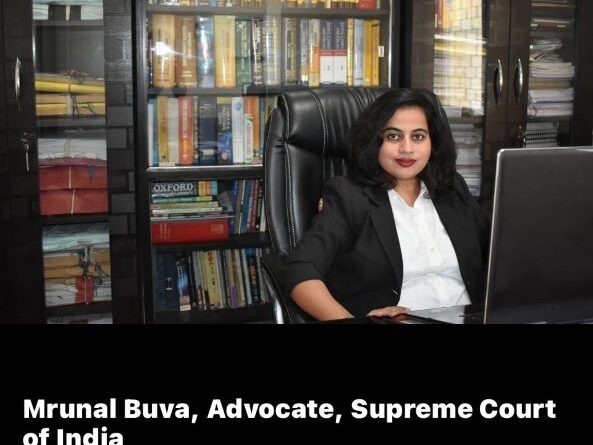Supreme Court Raises Concern Over Criminalizing Consensual Relationships After Breakups Without Misconception of Fact
(Judicial Quest News Network)
The Supreme Court has raised alarms about a disturbing trend in the criminal justice system where men are being charged with rape under the pretext of a false promise of marriage after a consensual relationship ends. The Court emphasized that, unless it is proven that the physical relationship was based solely on the promise of marriage, it cannot be said that consent was obtained under a “misconception of fact.” This concern was expressed in a recent judgment delivered by a bench comprising Justice B.B. Nagarathna and Justice N.Koteswar Singh
Criminalizing Prolonged Relationships: A Worrisome Trend
The Court noted that the growing number of cases involving allegations of rape after long-term, consensual relationships have ended suggests a troubling pattern. In such cases, criminal law is often invoked after the relationship turns sour, sometimes many years after it began. The Court warned that attaching criminal liability to relationships that were consensual for a prolonged period could have severe consequences. It could set a dangerous precedent, where a person could be dragged into a stringent criminal process based on allegations that arise belatedly after the relationship ends.
Such accusations, the Court pointed out, might unfairly attribute criminal intent to what is essentially a civil matter gone awry. It further expressed concern that this practice undermines the distinction between criminal law and relationship disputes, which should primarily be settled through civil proceedings.
Case in Point: Allegations After Financial Support Ends
The Court’s concerns were echoed in a similar case where it examined the Bombay High Court’s dismissal of a writ petition. The petition sought the quashing of an FIR filed against a man under various sections of the Indian Penal Code (IPC), including Section 376 (rape), Section 420 (cheating), Section 504 (intentional insult), and Section 506 (criminal intimidation). The complainant alleged that the man had maintained a sexual relationship with her for nearly a decade under the false promise of marriage.
However, the Court rejected the complainant’s argument, asserting that the relationship was consensual. It noted that the complainant had continued the relationship for nine years without consistent protest or objection, which suggested mutual consent rather than coercion. The Court also observed that the complainant’s decision to initiate legal action coincided with the discontinuation of financial support from the man, casting doubt on the validity of the allegations.
The judgment, authored by Justice Koteshwar Singh, emphasized that if a physical relationship is maintained for an extended period without consistent objection, it undermines the claim that consent was given under a false promise. The Court pointed out that the complainant’s prolonged engagement in the relationship suggested that the decision to continue was based on personal preference, not solely the promise of marriage. Furthermore, the Court noted that a claim of misconception of fact must be directly linked to the false promise of marriage, and not influenced by other personal reasons, including affection for the partner.
Consent and the Legal Implications
The Court further clarified the issue of consent in such cases. It held that when a woman alleges that her consent to a physical relationship was obtained under a misconception of fact (i.e., a false promise of marriage), the onus is on the complainant to demonstrate that the relationship was solely due to the promise. If the relationship continued for years, as in this case, and if it cannot be shown that the physical relationship was entirely based on the promise of marriage, then it cannot be said that consent was invalidated by a misconception of fact.
In the present case, the Court ruled that there was no prima facie case of rape under Section 376 of the IPC. It also noted that the allegations did not meet the criteria for charges under Sections 420, 504, and 506 of the IPC. Consequently, the Court allowed the appeal and quashed the FIR, finding no evidence of criminal offenses.
Conclusion
This ruling is a crucial reminder that the criminalization of relationships, especially those that were consensual for long periods, can have serious legal and societal implications. The Supreme Court has made it clear that allegations of rape based on a false promise of marriage must be scrutinized carefully. For criminal liability to attach, the relationship must be shown to have been solely based on the promise, without any other considerations. This judgment reflects a growing concern about the misuse of criminal law in cases of relationship disputes, where civil remedies may be more appropriate.
Appearance for petitioner Advocate Mrunal Buva advocate Dhairyashil Salunkhey Gunnam Venkateswara Rao AOR for respondents Advocate Yugandhara Pawar Jha advocate Mr Siddhartha Dharm Adhikari advocate Mr Aditya Aniruddha Pandey Mr Bharat Bangla advocate Mr Gaurav Singh advocate Mr Aditya Krishna advocate miss Preet s advocate Mr Adarsh Dubey
The legal community and the public at large must take heed of these concerns to ensure that criminal law is not used inappropriately to resolve matters that are better addressed through civil means. The case sets an important precedent in balancing the need for justice with the protection of personal relationships from unnecessary criminalization.




